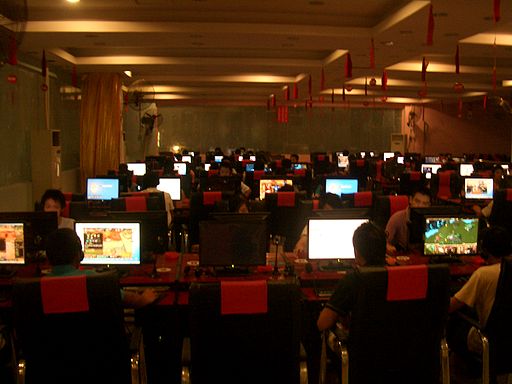Today almost half of China’s 1.3 billion inhabitants are online, along with 85 million Russians and 17 million Saudis. The proportion of people with Internet access in these countries will soon be comparable to that of the United States, Germany and Japan. But what are the political consequences of allowing people living in dictatorships Internet access?

An internet café in Tongyang Town, the county seat of Tongshan County, Hubei. Photo: Vmenkov. CC BY-SA 3.0, via Wikimedia Commons
This question has been hotly debated in recent years and for good reason. Access to the Internet fundamentally changes the way people obtain information and communicate with each other. Since authoritarian governments rely on controlling the information flow and restrictions on communication to stay in power, the introduction and proliferation of Internet access could either present a severe challenge to the foundations of their rule, or a promising opportunity to maintain and perhaps strengthen their grip on power.
In an article published in a new special issue of Journal of Peace Research, Nils B. Weidmann and I shed light on the issue. While previous research has shown that democratic leaders implement and expand the technology more readily than dictators, we still do not know much about why the Internet flourishes in some dictatorships and barely exists in others. Perhaps more surprisingly, we also do not know whether or how the Internet impacts a dictator’s staying power, despite the fact that strong claims are being made in the public discourse.
Read more at the Monkey Cage, where the entire text was published 24 February 2015.